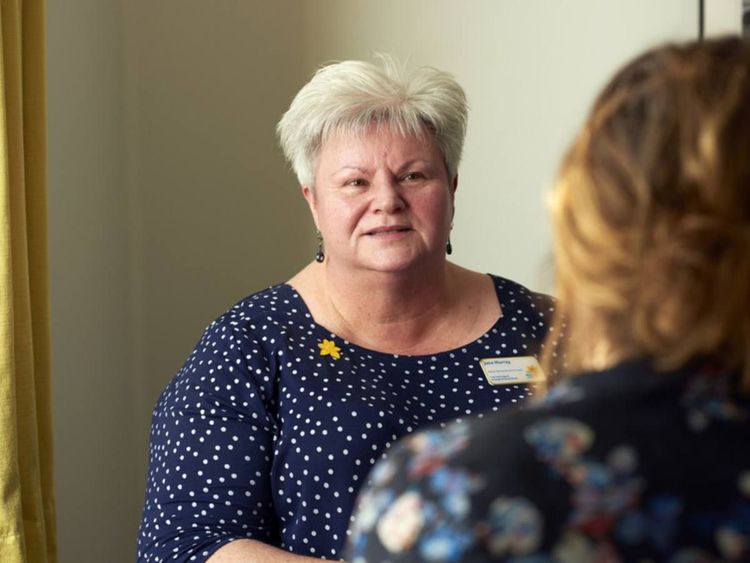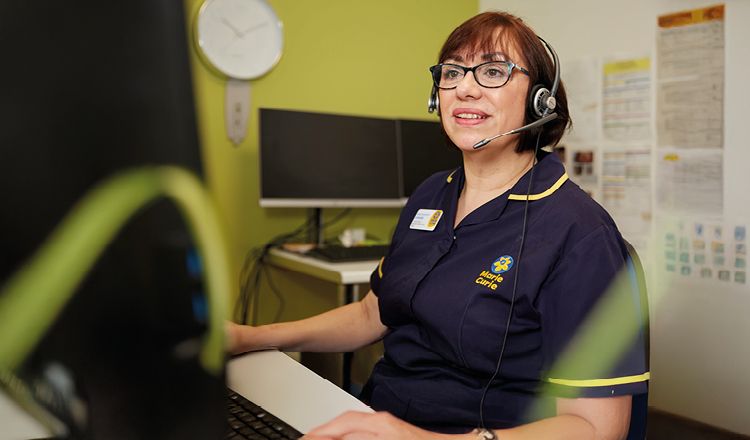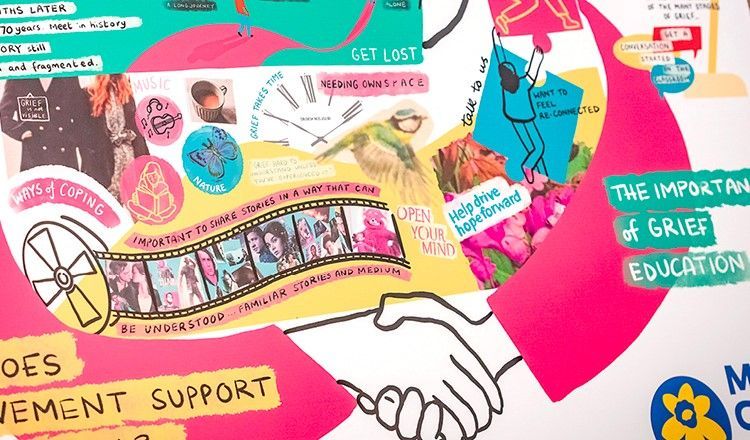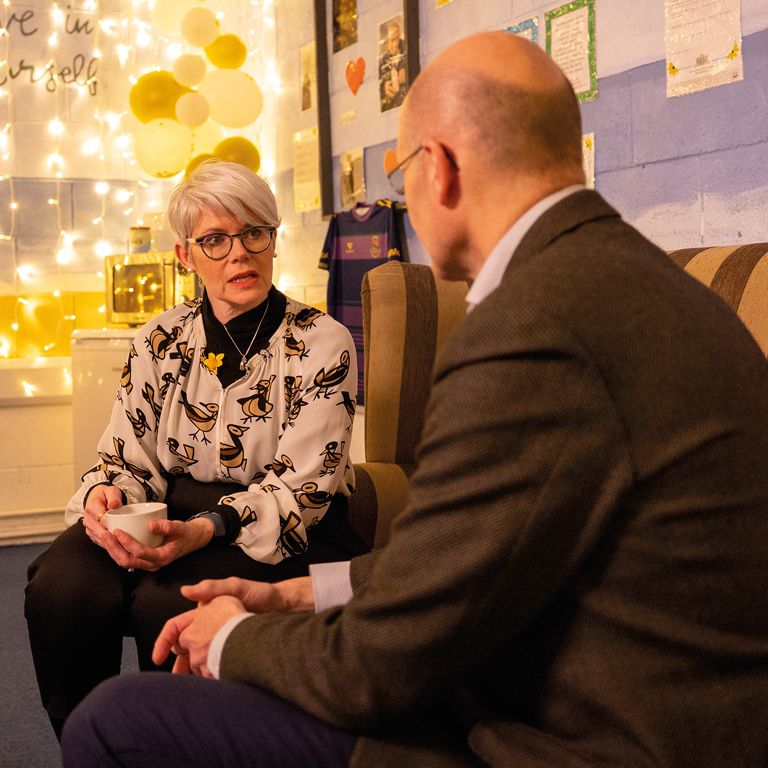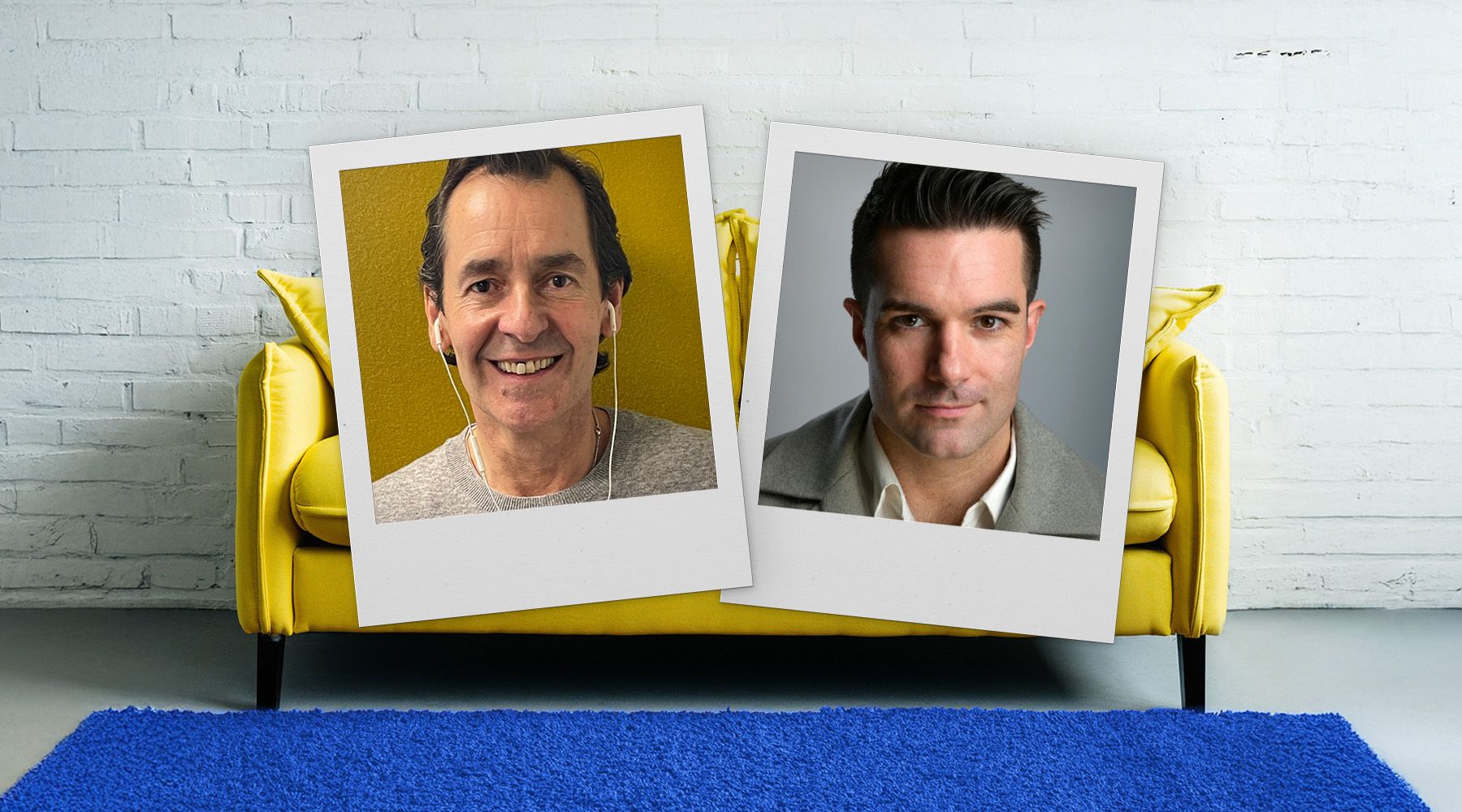Jane Murray has been a Bereavement Counsellor at the Marie Curie Hospice, West Midlands for 17 years, after working there as a nurse for 12 years. She shares what she’s learned about helping people understand and deal with their grief.
1. Fear of how others will react can stop people talking
"After someone close to them dies, it’s not uncommon for people to shy away from talking about their feelings with friends and family because they’re worried about upsetting them, or getting upset themselves.
"Bereavement support may help at this difficult time, as it’s a neutral and safe emotional space where people can talk confidentially about how their loss is affecting them."
2. There are lots of ways to start a conversation
"Some people find it very intimidating to talk. Once they’re in the room, they might not know what to say or how to express it.
"When words are not enough, I might invite them to try something creative to help them tell their story. This might be plotting their family tree on paper or using pebbles and shells to describe how they feel.
"Doing something with their hands can help to relieve their anxiety while also being less intimidating, encouraging them to open up and share their story of loss."
3. Something changes when people put their feelings into words
"People who’ve been bereaved often re-live the events of their loved one’s illness, dying and death over and over in their heads.
"I find that having an opportunity to verbalise those thoughts – to ‘get it out of their head’ – has a profound effect on them.
"I can hear and see relief in their body language from having shared their thoughts and feelings."
4. Not everyone cries or feels very emotional – everyone is different
"People who’ve been bereaved may experience many different types of emotion – sometimes all at the same time. For instance, sadness, anger and guilt.
"These emotions need to be released. People often apologise for crying. And I say: ‘Don’t apologise. This is a place where you can cry’. Sometimes people laugh hysterically.
"Laughter and tears are both ways of releasing those feelings."
5. Starting the emotional support process before a loved one dies can be helpful
"I often find that by the time the person who’s ill is admitted to the hospice, they’ve reached a level of acceptance that they are going to die. However, often their relative has not.
"Pre-death support may help to prepare them for their loved one’s death and a life without them physically in it.
"A lot of the work we do in these sessions is around making memories and helping the relative to build up the courage to have important conversations with their loved one before they die – such as sharing feelings, reassurances or special memories."
6. People who’ve lost someone may need to tell and re-tell their story
"Most people I support re-tell their story several times over the course of their time with me. They might use the same phrases, and there might be the same amount of tears.
"But one day, they might use a different tone of voice, choose a different word, or cry at a different time. There are glimmers there which they aren’t necessarily noticing.
"For example, something might creep into the story which is helping them look positively towards the future, like having a grandchild on the way.
"I let them tell their story. I listen, and don’t try to change it. Retelling it however many times they need to is a part of the grieving process, and of making sense of everything that has happened."
7. It’s not about rescuing people
"I have a team of fifty volunteers who work alongside me. When they do their initial training, they often want to ‘fix’ people. They want to say something so profound that the person walks out of the room feeling changed.
"But I say to the team, and I say to myself: it’s not about saying profound things, or doing magical things. The most important thing we can do is to be there, listening and not judging.
8. Grief isn’t linear
"I find it isn’t that people who have been bereaved start at stage one, and move through set stages until they’re ‘cured’. They’re not ill.
"Grief is more like the ocean – it goes back and forth. Sometimes it feels like you’re drowning, that the waves are washing over you. Then there will be a day with calm waters. Then there’s an important day, an anniversary, and it’s crashing over you again.
"I sometimes explain it like this: At the beginning, every day feels like a dark day. The bereaved person may feel all their days are now going to be dark. On the darkest of days, I encourage people to break it down to getting through the next hour then the next. Then that day will have passed.
"It can seem like there is no ‘light’ in the dark at all. People often describe this to me as not seeing any light at the end of the tunnel. I tell them there is light, I tell them: “There is light… you haven’t turned the corner to see it yet”.
"As the days, weeks and month pass, glimmers of light start to emerge and as time goes on, those glimmers grow. Until, eventually, there are more light days than dark days."
9. Year two can be hard, too
"People often talk about the first 12 months being the hardest, because you’ve got the first of everything without that person. All those significant milestones which they’re not here for, such as birthdays, anniversaries and religious festivals.
"But I’ve noticed people often find stepping into the second year harder than the first because they aren’t as prepared.
"For the first year, people expect those milestones to be very hard. But in year two, it’s more of an unknown. Just because they’ve been through those days once before, it doesn’t necessarily make it easier the next time.
"An awareness of this can help people to feel more prepared around those second milestone dates."
10. There’s often a lot of anger, and it can help to explore it
"The anger people feel is often targeted at quite specific things, for example GPs and the NHS, relating to things like delays in diagnosis.
"I sometimes tell people it might help to speak to the people involved in their loved one’s care to understand more about what happened.
"Most importantly, I try to listen to what’s making them angry first. Then I ask them where they think the anger has come from. This can help them to unpick it."
11. To do my job, I need to look after myself, too
"As a bereavement counsellor, people give me a lot of emotion. I’m like a sponge – but if I carry that about with me I’m no use to anybody.
"At the end of every day, I take time to reflect on the sessions I’ve done and the people I’ve spoken to – so before I go home, I know I’m emotionally safe to leave.
"Despite the sadness, it’s so rewarding to be a part of helping somebody who’s in the depths of despair to get to a place where this very different life that they haven’t chosen is worth living."
